Reforestation in Portugal
Portugal is one of the most diverse countries in Europe in terms of landscape and species. As in most European countries, thousands of years ago, natural forests once covered most of the landmass and the people lived with reverence and respect toward the natural world.
In present times the picture is very different, and every summer wildfires burn and dominate the lives of rural people. In drought years, we experience fires of such intensity and magnitude; the loss of human and animal life, habitat, homes and livelihoods is utterly disastrous. In June and October of 2017, immense fires raged, out of control, burning over 500,000 hectares and killing over 120 people and untold numbers of animals, leaving hundreds homeless.
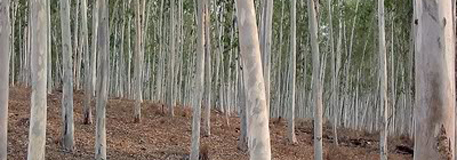 In the interior of the country, natural forests (and the fire-resistant mosaic landscapes that were created after them) have been replaced with hundreds of thousands of hectares of contiguous pine and eucalyptus monoculture. In the south, the montado ecosystem has been severely stressed through overgrazing and unsustainable agriculture, and it barely represents the resilient landscape of centuries before. The reverence and respect toward the land and nature has been replaced by dominance and desire for profit.
In the interior of the country, natural forests (and the fire-resistant mosaic landscapes that were created after them) have been replaced with hundreds of thousands of hectares of contiguous pine and eucalyptus monoculture. In the south, the montado ecosystem has been severely stressed through overgrazing and unsustainable agriculture, and it barely represents the resilient landscape of centuries before. The reverence and respect toward the land and nature has been replaced by dominance and desire for profit.
Over the last decades, most people have left the countryside for the promise of economic security in the cities. This urban flight has been exacerbated by social policies, like rural school and health center closures, leaving much of the interior depopulated and barren.
The loss of natural vegetation has broken local water cycles; water cannot be absorbed through the sun-baked soils that are inadequately shaded by the needles and thin waxy leaves of the pine and eucalyptus. In addition, these trees are desert-adapted, growing unnaturally fast here (which is why the pulp industry favors them) absorbing all the available moisture from the soils. The monocultures are literally drying out the country. As the land dries, it heats in the sun and the reflected heat raises ambient temperatures, affecting local rainfall patterns.
Portugal has a Mediterranean fire ecology with many species and old ways adapted to thrive with periodic, low-intensity fires. The devastation of local water cycles disrupts the natural balance between fire and water, and fire cannot help but respond as it does. When the fires are started, they have perfect conditions to burn wildly out of control as they did in 2017—flammable, dry, fuel load with no breaks.
On the face of it, the solutions are politically complex and practically overwhelming. The corporate eucalyptus plantations are well-defended by power and capital. The pine monocultures consist largely of abandoned land of unclear ownership.
But we are rising. Reflorestar Portugal (Reforest Portugal) and Projecto Floresta Despertar (Awakened Forest Project) are two of the growing number of associations and groups appearing to find solutions to this crisis, and there are many more.
 Reflorestar Portugal was founded by Susana Guimaraes and Marina Zimmermann as a grassroots movement to spread education about the solutions including positive approaches to the situation. They support local communities, private owners, and public agencies to respond more quickly and effectively to the lack of land management in Portugal.
Reflorestar Portugal was founded by Susana Guimaraes and Marina Zimmermann as a grassroots movement to spread education about the solutions including positive approaches to the situation. They support local communities, private owners, and public agencies to respond more quickly and effectively to the lack of land management in Portugal.
Parallel to restoring native forests, Reflorestar Portugal believes it is fundamental that forest regeneration goes hand-in-hand with human integration. This means a sacred reconnection to Earth, valuing those working with the land, creating collective platforms that create social support and economic flow, and using food-forest techniques to create food supply and other sources of income to those who live on the land—the guardians of our national forest, the people.
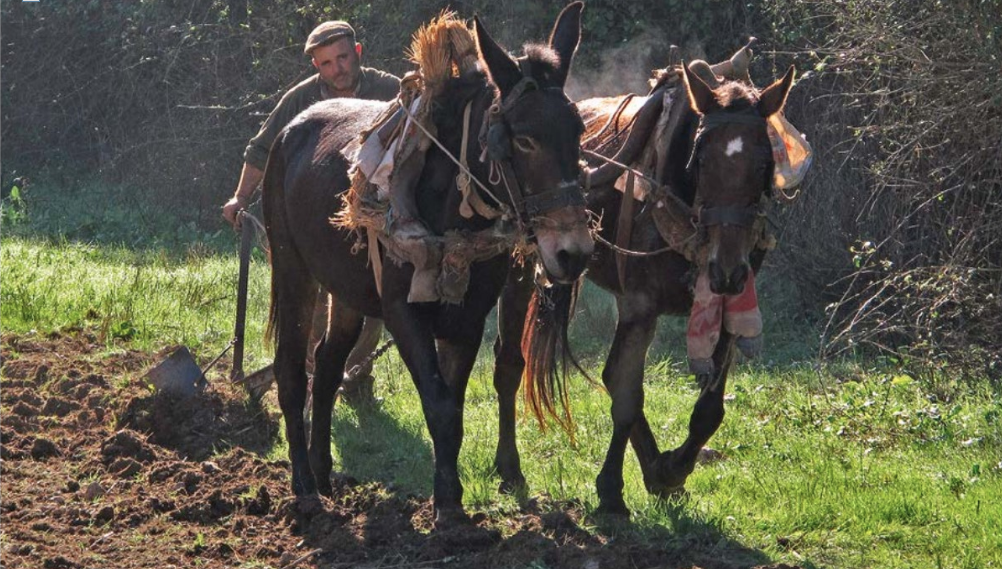
I founded the Awakened Forest Project after seeing a vision of the Serra do Açor where I live covered in diverse, vibrant forest once more. The vision felt like a gift from Mother Earth herself—the one she holds for the thriving of life here. In October 2017, our whole region burned. But even though the hillsides are now covered in dead trees and bare soil, I sense the strength, dignity, and patience of the mountains. It is not the land that needs saving; it is we who need saving.
Although the physical reforestation we undertake is, of course, important, it is secondary to healing the sacred relationship between people and Mother Earth. The loss of the sacred stems from the mistaken belief that we are separate—from Nature, from each other, from anything.
When we drop the idea of separation, the will to defend, destroy, and dominate fall away. Then we can be available to the truth that Mother Earth, the waters, the rocks, the forest are sentient and our kin. Not to mention, wiser than we are. Then we can once again listen to the land and the forest and be in service to all Life.
If we don’t address the underlying issue of our denial of basic unity, then we will continue to act as if we are consumers and nature is the producer. We may create more ‘sustainable’ systems, but we will still be disconnected and likely to always want more.
Raquel Perdigão Williams beautifully expresses it from the ancient Portuguese ways:
“Ó que lindo luar está,
Para apanhar a marcela.
Apanha, menina apanha,
Faremos a cama nela.”“Oh what beautiful moonlight it is
To gather the may weed.
Gather, girl gather,
We will make the bed of it.”
Little plant songs are popular in Portugal. They take us to the intimate and unique connection between people and Nature. Out of a fear of their being misunderstood, these songs, prayers, recipes, and ancestral wisdom have been lost or hidden in a deep place: in the oblivion of forgetfulness.
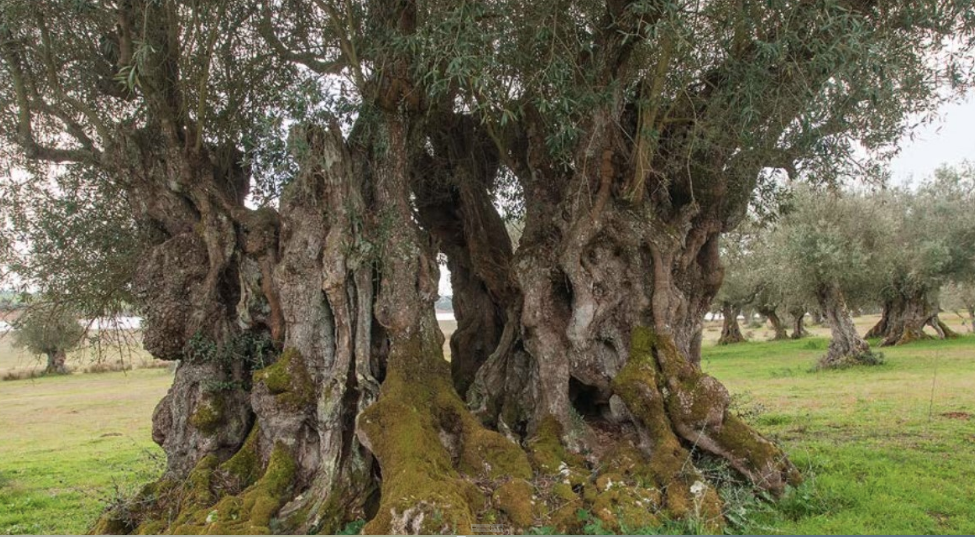
It is essential that we recover these traditions, not only because they represent the Portuguese ancestral soul, but because they shine with and keep alive the truth that there is no division between people and the natural elements. Nature and people are not separate. There is a magic that happens when that illusion dissipates. In a simple life of looking (seeing), listening (hearing), and feeling (sensing) everything around, with calmness and focused attention, trust arises between the human being and the animals, plants, soil, rocks, minerals, and invisible beings. In this trust lives the truth without fear or expectations. One is.
The forest, with all its elements, not only supports our deepest being but she is also available for our evolution as individuals and as a society. If there is trust in this relationship and acceptance of the real and natural environment, the beautiful, simple, and magical unity of everything will be expressed, revealing an inherent and profoundly pleasurable peace.
How would the world be if respect was constant? How would the world be if all of us fell to our knees in the presence of the sacred that we see in woodland and knew it as part of ourselves? How would the world be if all of us embraced the softness, the strength, the courage, the love, the light and the surrender that we know not only in woodland but in our own depths? How would the world be if we recaptured the traditional plant songs that our ancestors sang, simply and lovingly from their hearts, when they went to woodland for the day to be, to work, and to respond to life?
For now, dissolving into these contemplations, I wish for a moonlit night so I can gather the may weed and then lie down on it.
Tamera Peace Research & Education Center’s recently-published book, Defend the Sacred: If Life Wins, There Will Be No Losers, contains this essay and many others. Tamera invites you and activists from around the world to participate in their upcoming conference on resistance and regenerating the community of life, in Tamera, Portugal, August 16–19, and join this work.



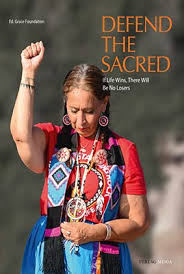

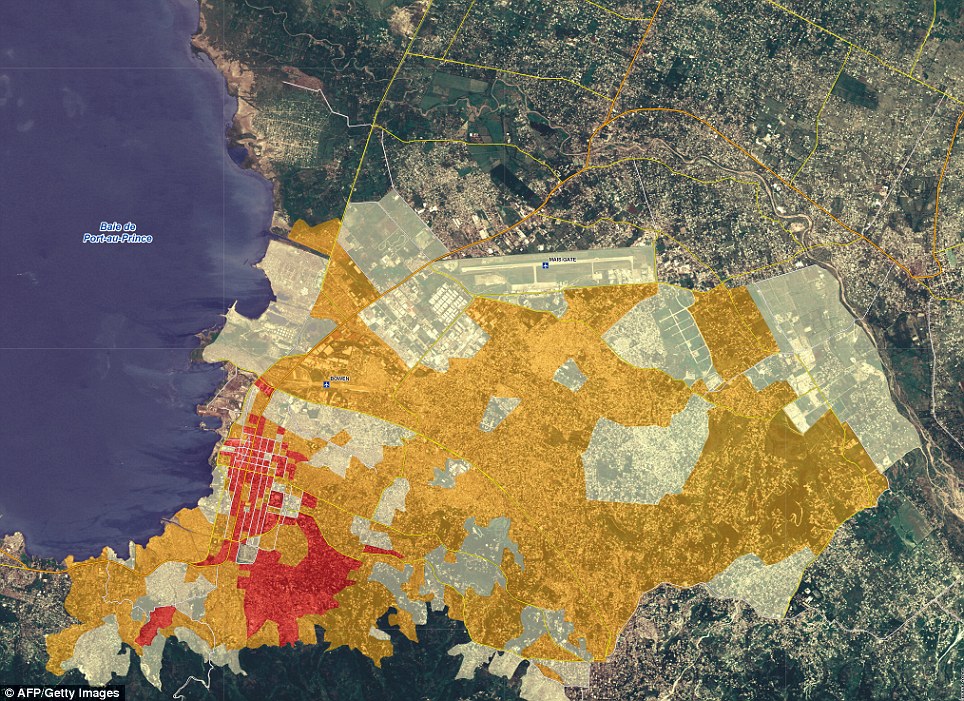


Hi Laura,
I am looking for active reforestation projects in Portugal?
Do you have any information ?
Thank you !
Hello Laura,
I Study “International Forestry Ecosystem Management” and I am looking forwart to cooperating with different projects in portugal. Do you have any recomendations? Thank you very much.